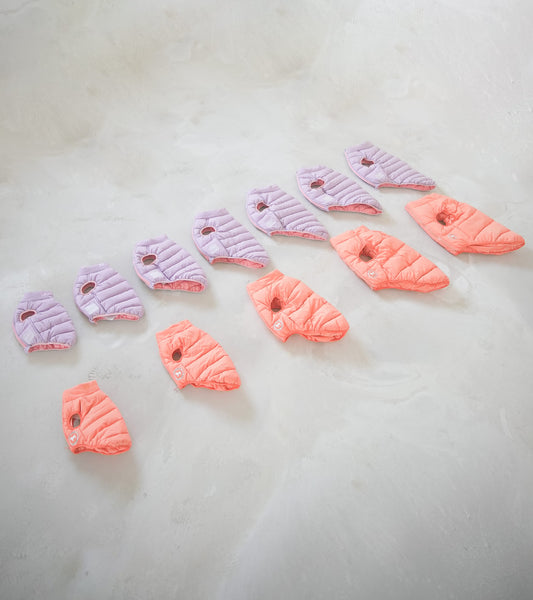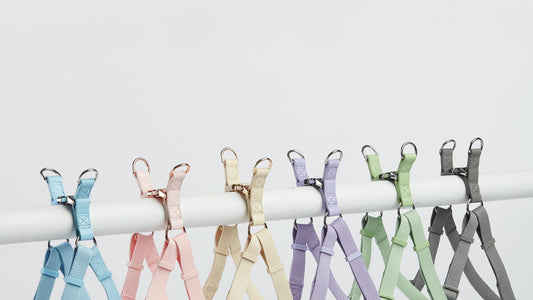14th - 20th November
Today marks the last day of National Self Care Week, a UK-wide initiative aimed at promoting awareness and providing support for self-care across communities.
This year the initiative theme was ‘exercise self care for life’, a theme intended to inspire people to take proactive steps to better manage their own mental and physical health.
At Barc, self-care is something that's hugely important to us. We're passionate about promoting healthy lifestyle choices, which is why earlier in the year we launched a campaign during Mental Health Awareness Week.
Focused around issues of loneliness, we explored the different ways dogs can help to facilitate human connection and encourage daily habits that benefit wellness.
Knowing that self-care is intrinsically linked to mental and physical wellbeing, we hope this article reminds everyone of the importance of putting their own health first, not just for Self Care Week, but for life.
- What is Self Care Week?
- What is self-care?
- What are the seven pillars of self-care?
- Dog ownership and self-care
- Helpful resources and support links
What is Self Care Week?
Launched in 2011, Self Care Week is an initiative led by the Self Care Forum charity.
Held annually in November, Self Care Week encourages habits and lifestyle choices centred around self-care.
The initiative aims to improve mental wellness and physical health among individuals and communities in the UK.
What is self-care?
Self-care has a number of different meanings which are open to interpretation, making defining this concept difficult.
Broadly speaking, self-care is the practice of taking action to improve your own health.
Focused around autonomy, it involves the process of making daily habits and choices that can help to combat and manage sickness.
The International Self-Care Foundation (ISF) defines this practice as:
'Self-Care is what people do for themselves to establish and maintain health, and to prevent and deal with illness.
It is a broad concept encompassing hygiene (general and personal), nutrition (type and quality of food eaten), lifestyle (sporting activities, leisure etc), environmental factors (living conditions, social habits, etc.) socio-economic factors (income level, cultural beliefs, etc.) and self-medication.’
What are the seven pillars of self-care?
To help society better understand the different aspects that influence overall health and wellbeing, the ISF has developed a self-care framework of seven key pillars.
The seven self-care pillars include:
- Health Literacy
- Mental Wellbeing
- Physical Activity
- Healthy Eating
- Risk Avoidance & Mitigation
- Good Hygiene
- Rational & Responsible Use of Products, Services, Diagnostics and Medicines

Source: Seven Pillars via International Self-Care Foundation.
Dog ownership and self-care:
As part of our campaign for Mental Health Awareness Week, we conducted a survey which found that 79% of UK dog owners feel their dog/s help to keep them fit and healthy by leading more active lifestyles.
This finding demonstrates just one of the key ways that dog ownership can positively affect, and contribute to human happiness.
To take part in the Mental Health Foundation's 'largest collective sharing of loneliness experiences', Barc's founder Alexander Fell wrote an open letter discussing loneliness and isolation, before our customers shared their stories in a campaign article featured on Barc London's blog.
We strongly believe that story sharing is one of the best ways for people to connect to others on a deeper level, so for Self Care Week we're keeping the momentum going with a personal experience of dog ownership as it relates to self-care:
"I've always had an idea of the ways owning a dog could influence my life, but I don't think I understood the full extent of this until I actually became a dog owner.
Prior to getting a dog I wasn't taking steps to actively put my physical or mental health first.
I definitely knew the things I needed to be doing to achieve a healthier lifestyle, but for whatever reason I wasn't making these things a priority.
For me, owning a dog has helped to add a huge amount of structure to my life outside of work.
Instead of waking up, showering and heading straight to my desk, I now start every day with a walk outdoors.
I'm embarrassed to admit that my step has increased dramatically, and I've spoken to more strangers in the past few months than I have in years (being an introvert, I've only ever really felt comfortable socialising with friends in pub / bar settings).
The decision to get a dog was not taken lightly. My partner and I had always wanted one, but it definitely took us a while to reach a place where we felt fully ready (I had always been nervous about the many responsibilities of dog ownership, and the pressure I knew I would feel to do a good job at it!)
Naturally I'm not suggesting that dogs are the solution for self-care, but for people who are already considering welcoming a dog into their lives, I really do believe the benefits of owning a dog are plenty.
To share just a few ways that taking care of a dog has inadvertently helped me to take better care of myself:
- Physical: I now walk over 15,000 steps per day and feel inspired to be more active. Thinking about my dog's nutrition requirements has made me think more about my own diet, and I remember to hydrate far more than I used to!
- Mental: I now take regular breaks away from the computer. My phone screen time has decreased and I feel more okay than ever with taking time for myself, my partner and my pup.
- Emotional: Not sure I can attribute any specific self-care habits to this, but the pure joy our dog has brought to our life has definitely had a positive impact on my mood. I now understand the term man's best friend and see the benefits of dogs for companionship.
- Environmental: I'm spending more time outdoors in the fresh air exploring different areas in the neighbourhood. I've even discovered a bakery close by, so now Sundays are made better with coffee and croissants.
- Social: I've met lots of dog owners that live in the area, and been added to a couple of dog walking groups on Whatsapp. Even people who don't own dogs regularly stop to chat and give our pup a cuddle.
- Recreational: I've found myself drinking less and enjoying wholesome activities more. I've started running again and have signed up for a half marathon in 2023.
We both agree that it's probably the best decision we ever made, but it's definitely a lot of work and not something to do on a whim.
That being said, lots of these new habits don't actually require a dog.
So, if your circumstances don't fit pet ownership, I encourage you not to do what I did and wait for something like getting a dog to motivate you to prioritise self-care."
Helpful resources and support links
A great way to start exercising your own self-care is to consider aspects of your life that may be holding you back from being completely happy and healthy.
Research shows that making more time for things that bring us joy can have a really positive influence on emotional wellbeing.
When it comes to areas we lack, such as physical activity or getting enough sleep, setting small goals that are easy to incorporate into daily routine is the best way to create lifestyle improvements without forcing too much change, too soon.
Slow and steady is the key to ensuring self-care habits will last the long term.
There are lots of self-care resources available online to help with this, and the links below provide a good starting point:
- NHS 5 Steps to Mental Wellbeing Guide
- Talking Change YouTube Workshops for Mental Health & Wellbeing
- Self-Care Techniques & Lifestyle Changes from Mind



